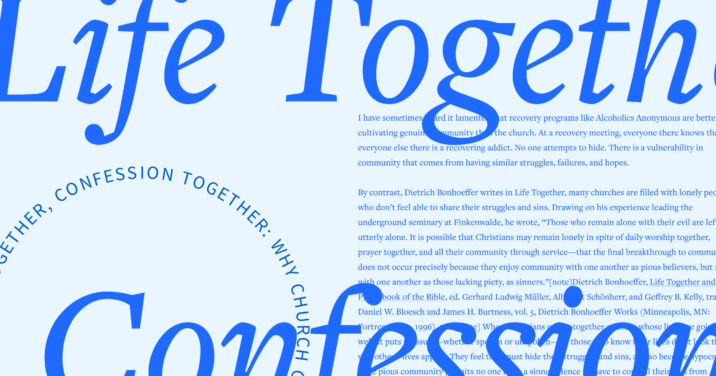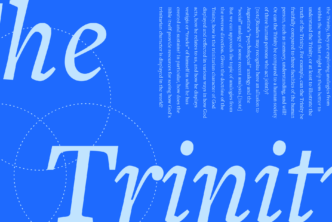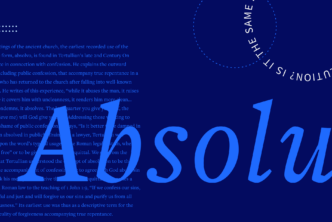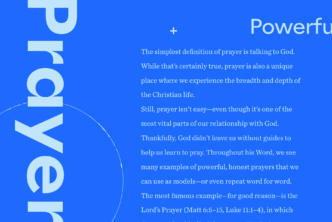Loneliness is truly an epidemic in our Western culture. Countless people lack any close friends or romantic partners. They join no groups. They go bowling alone.
What can churches offer to the lonely? One answer: the practice of public confession.
“Hi, I’m …”
Public confession is almost a joke: the “Hi, I’m so-and-so” of twelve-step programs is mocked more often than it’s tried.
But perhaps Alcoholics Anonymous is onto something the church loses when it omits public confession: at a recovery meeting, everyone there knows that everyone else there is a recovering addict. No one attempts to hide. There is a vulnerability in community that comes from having similar struggles, failures, and hopes.
By contrast, Dietrich Bonhoeffer says in Life Together, many churches are filled with lonely people who don’t feel able to share their struggles and sins. Drawing on his experience leading the underground seminary at Finkenwalde, he wrote,
Those who remain alone with their evil are left utterly alone. It is possible that Christians may remain lonely in spite of daily worship together, prayer together, and all their community through service—that the final breakthrough to community does not occur precisely because they enjoy community with one another as pious believers, but not with one another as those lacking piety, as sinners.1
When Christians gather together as those whose lives are going well, it puts pressure—whether spoken or unspoken—on those who know their lives don’t look the way others’ lives appear. They feel they must hide their struggles and sins, and so become hypocrites.
The pious community permits no one to be a sinner. Hence all have to conceal their sins from themselves and from the community. We are not allowed to be sinners. Many Christians would be unimaginably horrified if a real sinner were suddenly to turn up among the pious. So we remain alone with our sin, trapped in lies and hypocrisy, for we are in fact sinners.2
The church needs to recover the practice of “confess[ing] our sins to one another” (Jas 5:16).
Corporate confession
Anglican priest and evangelical leader John Stott identified three types of confession in his book, Confess Your Sins:
- Secret confession to God alone.
- Private confession to an offended party.
- Public confession.3
While all these types of confession are valuable, in this article I’d like to draw attention to a particular kind of public confession: general or corporate confession as part of a worship service.
“If we claim to be without sin, we deceive ourselves and the truth is not in us,” we are told in 1 John. But “if we confess our sins, he is faithful and just and will forgive our sins and purify us from all unrighteousness” (1 John 1:8–9). As Bonhoeffer noted above, the need for confession begins with the admission that we have sinned. This sin brings guilt on us, and this guilt may be removed through forgiveness. God has provided a means to forgiveness in the death of Christ: “In him we have redemption through his blood, the forgiveness of sins, in accordance with the riches of God’s grace” (Eph 1:7). To gain access to this forgiveness, confession is necessary. Stott states it quite simply: “Forgiveness depends on confession.”4 Sin, forgiveness, and confession go together.
We may be reluctant to confess our sins, and yet we must come to see that the connection between confession and forgiveness is freeing. Again Bonhoeffer writes,
This message is liberation through truth. You cannot hide from God. The mask you wear in the presence of other people won’t get you anywhere in the presence of God. God wants to see you as you are, wants to be gracious to you. You do not have to go on lying to yourself and to other Christians as if you were without sin. You are allowed to be a sinner.5
Once you admit you are a sinner, you can receive forgiveness.
4 benefits of corporate confession
Confession is required for forgiveness—but need confession be public, corporate? Why not simply confess to God alone, or privately to another person? Certainly, our sins are forgiven when we truly repent and confess to God secretly. And just as certainly, if we have sinned against someone we are called to confess to that person, as Jesus indicates in Matthew 5:23–24. But while I would not say that general corporate confession is a requirement in the life of every Christian, and while I would also admit that corporate confession can be (and often is?) done in a rote manner, still, if engaged in as genuine confession, it can have benefits that should not be overlooked.
1. Corporate confession helps us to remember that all our lives should be marked by repentance
As Martin Luther wrote in the first three of his famous Ninety-Five Theses,
1. When our Lord and Master Jesus Christ said, “Repent” [Matt. 4:17], he willed the entire life of believers to be one of repentance. 2. This word cannot be understood as referring to the sacrament of penance, that is, confession and satisfaction, as administered by the clergy. 3. Yet it does not mean solely inner repentance; such inner repentance is worthless unless it produces various outward mortifications of the flesh.6
In confessing in the context of worship, we do our best to call to mind those ways in which we have failed, fallen short, and merited condemnation. It is a way to examine our lives, calling to mind with humility our need to repent. Then, together, we cast it all to the cross.
2. Corporate confession helps us remember the fact that Christ is always ready to forgive our sins
Corporate confession (and especially when it is followed by an assurance of pardon or absolution) reminds us of what a great Savior we have. We confess that we are sinners, but we are not left in our sins. While we may know and experience assurance that our sins are forgiven when we confess in secret, confession as part of a congregation can serve as an additional reminder of that truth.
3. The examination of heart that may accompany corporate confession can help prepare us to make more private confessions of individual sins
Even if we come to worship having neglected the practice of private confession, when in corporate confession we confess and are assured of forgiveness, we are that much more able to live without guilt and shame, in freedom. And we are less interested in hiding, which in turn may prompt us to confess more specific sins and seek reconciliation with other people.
4. We in corporate confession may be reminded that sin is not only private and personal but that it affects the entire community
We see this in Scripture in places like Psalm 51 and Nehemiah 9. Our sin has effects that go well beyond us, and corporate confession reminds us that we are in this together—both that we have all sinned, and that we are invited to be reconciled both to God and to one another.
In sum, corporate confession should be seen as an opportunity rather than a burden. In fact, it is an opportunity to set aside our burdens. As Tim Keller writes in his brief article “All of Life Is Repentance”:
In the gospel the purpose of repentance is to repeatedly tap into the joy of our union with Christ in order to weaken our need to do anything contrary to God’s heart.7
The more we repent, the more opportunities we have to find joy in our union with Christ. As we find more joy in him, our desire to sin diminishes.
The practice of corporate confession
Christians have seen the need to include corporate confessions in their liturgies for a very long time. For example, the Liturgy of Saint James includes the words, “Forgive, remit, pardon, O God, our transgressions, voluntary and involuntary: in deed and in word: in knowledge and in ignorance: by night and by day: in thought and intent: in Thy goodness and love, forgive us them all.”8
Here are a few elements you might find in a typical corporate confession; I will use the confession from the 1662 Book of Common Prayer as an example.
First, God is addressed in a way that emphasizes his greatness and loving character. Here, it is “Almighty and most merciful Father …”9 From the start, our fears of condemnation are allayed by the confidence that the God we approach is ready to welcome us.
Second, there is an acknowledgment of sin both active and passive: “We have erred and strayed from thy ways like lost sheep. We have followed too much the devices and desires of our own hearts. We have offended against thy holy laws. We have left undone those things which we ought to have done; And we have done those things which we ought not to have done.”10 This is designed to be “general,” both in the sense that it is meant for everyone and “is an acknowledgment rather of our general sinfulness than of particular sins.”11 These encompass both conscious sins and unconscious sins, sins of commission and sins of omission.
Third, there is an admission that sin has led us astray or made us unrighteous, completely incapable of saving ourselves: “And there is no health in us.”12 As Stott writes, “Our sin is not to be measured in deeds alone, but in the disease of our fallen nature. So we are ‘miserable offenders,’ which means, offenders in need of the pity of God.”13
Fourth, there is a request for God’s forgiveness: “Spare thou those, O God, who confess their faults. Restore thou those who are penitent.”14 This sparing and restoring is asked for in keeping with God’s own character that has been revealed to us: “According to thy promises declared unto mankind In Christ Jesu our Lord.”15
Fifth, there is a request that, having been forgiven, we may walk in newness of life: “And grant, O most merciful Father, for his sake, That we may hereafter live a godly, righteous, and sober life, To the glory of thy holy name.”16 Thankful for God’s willingness to forgive, we turn to the future and ask that God would continue to change our character by his grace. As Stott writes again, “We look beyond our promised forgiveness and pray for grace to live lives of holiness towards God, others, and ourselves.”17
After the confession and absolution (or assurance of pardon), many churches will “pass the peace.” It is often treated as a greeting time, but it is more than that. It is a sign that, as we have been reconciled to God by his forgiveness of our sins, so we also have the gift and the task of being reconciled to one another.
Conclusion
While it is certainly true that recovery groups can often be better at fostering community than churches, this is not because churches are without resources for deepening community and reducing loneliness. One such resource, as I have tried to show in this article, is the corporate confession of sin. If churches could be communities of sinners who persistently repent, rather than communities of what Bonhoeffer called “pious believers,” they can be places where people feel seen and accepted. This is so not only because acknowledgment of sin and repentance are good, though they are—it is because God is willing and able to forgive us. In this way, confession connects us to the source of joy and transformed lives.
Resources from this article for further reading
Dietrich Bonhoeffer Works, vol. 5: Life Together and Prayerbook of the Bible
Regular price: $18.99
Related articles
- What Is Absolution? Is It the Same as Forgiveness?
- A Guide for Spiritual Renewal through Confession
- 5 Things Repentance Isn’t & 2 Examples from the Bible on What It Is
- Dietrich Bonhoeffer, Life Together and Prayerbook of the Bible, in vol. 5, Works, eds. Gerhard Ludwig Müller, Albrecht Schönherr, and Geffrey B. Kelly, trans. Daniel W. Bloesch and James H. Burtness (Minneapolis, MN: Fortress Press, 1996), 108.
- Bonhoeffer, Life Together, 108.
- John Stott, Confess Your Sins: The Way of Reconciliation (Grand Rapids: Eerdmans, 1964), 5.
- Stott, Confess Your Sins, 4.
- Bonhoeffer, Life Together, 108.
- Martin Luther, Martin Luther’s Basic Theological Writings, eds. William R. Russell and Timothy F. Lull, 3rd ed. (Minneapolis, MN: Fortress Press, 2012), 8.
- Tim Keller, “All of Life Is Repentance.”
- Alexander Roberts, James Donaldson, and A. Cleveland Coxe, eds., “The Divine Liturgy of James,” in Fathers of the Third and Fourth Centuries: Lactantius, Venantius, Asterius, Victorinus, Dionysius, Apostolic Teaching and Constitutions, Homily, and Liturgies, trans. William Macdonald, The Ante-Nicene Fathers 7 (Buffalo, NY: Christian Literature Company, 1886), 546.
- Samuel L. Bray and Drew Nathaniel Keane, eds., The Book of Common Prayer and Administration of the Sacraments and Other Rites and Ceremonies of the Church, International Edition (Downers Grove, IL: InterVarsity Press Academic, 2021), 3.
- Bray and Keane, Book of Common Prayer, 3.
- Stott, Confess Your Sins, 32.
- Bray and Keane, Book of Common Prayer, 3.
- Stott, Confess Your Sins, 32.
- Bray and Keane, Book of Common Prayer, 3.
- Bray and Keane, Book of Common Prayer, 3.
- Bray and Keane, Book of Common Prayer, 3.
- Stott, Confess Your Sins, 32.








